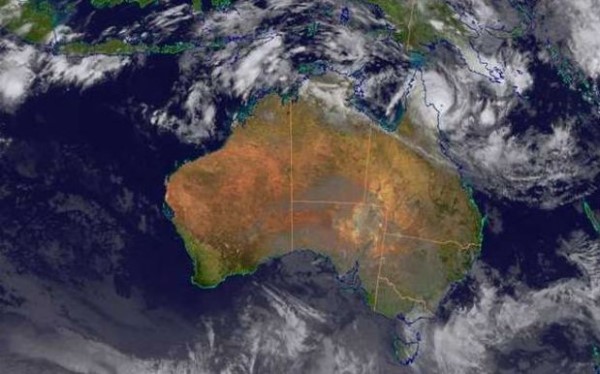Has the Lucky Country, Australia, run out out of luck?

30 November 2015
Jane Patterson - Radio New Zealand
Power Play - The tide of migration to Australia is turning, with more New Zealanders choosing to stay put, and many overseas choosing to come home.
Though some are doing so voluntarily, others are forced to return under tough new migration rules. For the first time in 20 years, more people arrived in New Zealand than left for Australia.
The dynamics have been slowly shifting during the past decade: the number of New Zealanders leaving has halved in the past three years from nearly 49,000 in 2012 to 21,400 in the year to October 2015. At the time, Prime Minister John Key, the then-opposition leader, used the image of a rugby stadium full of people fleeing New Zealand to escape the Labour-led government.
The number of Kiwis returning has also doubled in the past 10 years, from 8000 in 2005 to more than 16,000 for the year ended October 31.
The turnaround is arguably driven more by the worsening Australian economy and increasing cost of living, rather than which party is in government.
The Australian economy has suffered with the continuing drop in commodity prices, taking the shine off the once-lucrative mining industry, which used to provide high paying jobs to New Zealanders finding it hard to make a living at home.
Treasury forecasts for economic growth in Australia have pulled back from 3 percent over the next few years to 2.7 percent, as a result of slower population growth and predictions the federal budget will be in deficit longer than previously thought.
Its Deputy Secretary, Nigel Ray, recently told business economists Australia had recorded its third straight year of “below trend growth” in 2014 to 2015, noting that was linked to the “mining investment cliff” his country was falling off.
“This means Australia is now in a prolonged period of below-par growth, the likes of which we have rarely seen outside of a recession.”
Mr Ray specifically referred to lower net migration from New Zealand, and a drop in the number of temporary visa holders.
“This has immediate and unavoidable consequences for the economy's potential: fewer people means a smaller supply of employees.”
In saying that, if you look at the baseline economic figures, New Zealand's economic growth has averaged 2.2 percent, partly driven by the Christchurch rebuild, and is expected to continue at about that pace, or even lower; that is alongside the rate of unemployment, which has recently risen to 6 percent.
However, maybe the cost of living in Australia and tightening of the job market is tipping the balance.
A long-standing issue for New Zealanders in Australia is also access to benefits such as welfare support and disability insurance - linked to the difficulty they have gaining citizenship. This last point was recently highlighted by Mr Key during the debate over Australia detaining and then deporting New Zealand citizens.
It was a problem for Australia to have so many people who are effectively “stateless”, without residency or citizenship, he said; people who had lived in Australia and have a commitment to that country, but without the rights and benefits of citizens.
That has exacerbated the effects of Australia's visa cancellation and deportation policy in the eyes of the New Zealand government; many of the people caught up in that policy, mostly because of criminal convictions, were brought up in Australia, or are at least long-term residents.
However, they can be deported because they are visa holders, not citizens; while on paper they may be New Zealanders, it was Australia that shaped them as individuals.
New Zealanders moving to Australia can apply for a Special Category Visa enabling them to live and work there as long as they wish, but it is a temporary visa.
Most New Zealanders who have gone to Australia since 2001 are not entitled to a range of social security benefits, including unemployment or sickness allowances, and have limited access to several state services like public housing, transport subsidies and disability services.
Australians, however, are able to access a wide range of welfare support allowances here, generally if they have been living in New Zealand for two years or more.
The other element of the Australian system that sticks in the craw of New Zealanders living and working there is that while they have to contribute to the disability benefits scheme, they cannot claim disability or carer payments from that scheme.
The unfairness of the system has been again been raised by Labour leader Andrew Little and MP Phil Goff this week in front of Australian parliamentary committees.
Both Labour and National governments have campaigned to repeal those 2001 law changes with little success, even invoking the supposed close family kinship between the trans-Tasman allies.
Australia's migration committee has committed to reviewing entitlements, particularly relating to the disability benefits scheme, and Prime Minister Malcolm Turnbull has made noises about making it easier for New Zealanders to gain citizenship.
But as one MP told an RNZ reporter in Canberra, Australians were more used to seeing New Zealanders as a cost, rather than for the contribution they made and the value they added to the communities they lived in.
Perhaps New Zealanders have simply decided the cost of living in Australia is becoming too high.